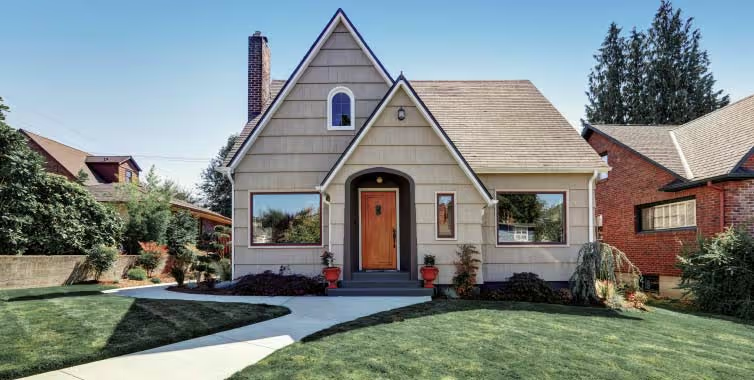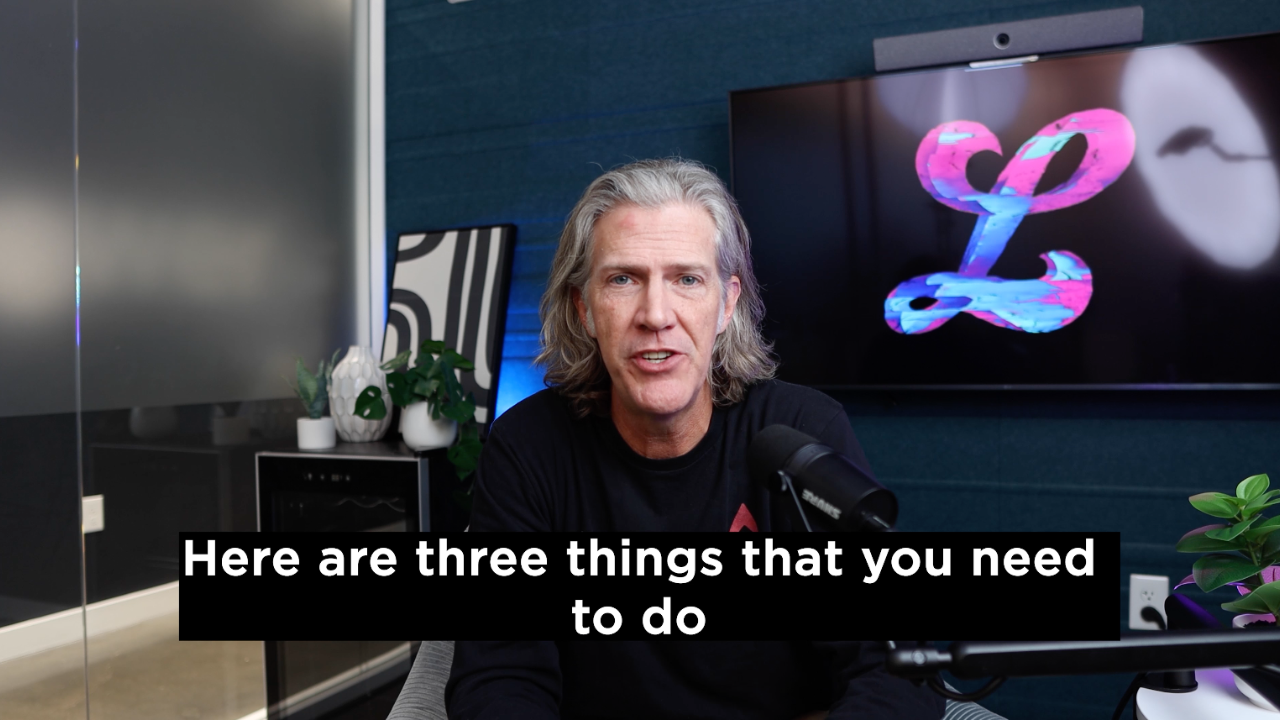1. Avoid any new credit activity.
Lenders check your credit when you apply for a mortgage loan, and they’ll pull it again before closing. Your credit plays a significant role in your approval, as well as the interest rates you’ll pay. Avoid new credit activity, such as applying for a new credit card, taking out a personal loan, or racking up a lot of debt to avoid decreases in your score. You can also check your credit yourself before applying for a home loan. If your score isn’t where you want it to be, take steps to improve it. Review your credit reports for errors, pay down existing debt, and make all of your current payments on time.
2. Save for a down payment.
The common recommendation for a down payment is often 20%. While many home buyers do save this much for their down payments, most lenders allow for a much lower amount. Some programs allow for as little as a 3% down payment, and VA home loans don’t require any money down at all. While you might not need to save 20%, you’ll still want to have a solid down payment saved up. Keep in mind that a higher down payment increases your chances of getting approved and means you might not have to take out private mortgage insurance. Make sure you don’t drain your savings to make the payment, though.
3. Don’t forget gift money.
Several lenders allow home buyers to use gift money from family and friends toward their down payment. You should, however, work out the details before you begin shopping to avoid problems later. If someone promises gift money to help you get your first house, have an open and honest discussion with them about how much they’re willing to provide and when you’ll get it. Make copies of the transfer to show your lender how and when you received the funds.
The earlier you take care of gift money, the less likely it is that you’ll run into problems such as losing your earnest deposit.
4. Research and compare your loan options.
What many first time home buyers don’t realize is that there are different types of mortgage loans. In addition to conventional fixed-rate mortgages, you have FHA loans, USDA home loans, and VA home loans. Each type has different requirements. To get a better understanding of your options and figure out which one is right for you, you should consult with a qualified loan officer.
5. Get pre-approval before you start shopping.
You don’t want to get attached to a particular house only to find out when you apply for a mortgage that you can’t afford it. Getting pre-qualified or pre-approved before you start shopping gives you a much better idea of how much a lender is willing to provide. Pre-qualification gives you a rough estimate based on your income and debts. Pre-approval, on the other hand, involves closer inspection of your finances, giving you a much clearer idea of how much you can borrow and what the terms of that loan will be.
6. Compare mortgage rates from different lenders.
Don’t settle for the first lender you contact. Instead, get quotes from at least three different lenders. You might be surprised at the variations between each company, even though you provide them with the exact same information. Don’t focus only on the rates, though. Pay attention to fees attached to each loan as well. Carefully reviewing each option will help ensure that you get the best deal possible.
Getting a rate quote from only one company could cost you thousands of dollars.
7. Don’t buy more than you can afford.
Getting pre-approved gives you a better idea of how much house you can feasibly afford. While you can buy a house that costs what you’ve been pre-approved for, you should shop for houses that cost less. That’s because your pre-approval doesn’t account for other expenses associated with buying a home. This strategy also gives you a little more wiggle room when it comes to making an offer.
8. Budget for closing costs.
In addition to a down payment, you should also save up for closing costs. In many cases, they’re 2% to 5% of the loan amount. While the home buyer is typically responsible for these costs, you may be able to reduce what you owe by asking the seller to pay a portion. You can also shop around and compare different expenses associated with closing, such as homeowner’s insurance and title searches. Even so, you should still make sure that you save up for (and budget for) these costs.
9. Hire the right real estate agent.
A real estate agent is an invaluable asset in the home buying process. Not just anyone will do, though. You’ll want to find an agent who knows the area well and who’s motivated to help you find the best house for you. You should also find someone that you feel completely comfortable around. Since you’ll be spending a lot of time together, it’s essential that you get along well.
10. Consider the location.
While the physical house is incredibly important, don’t forget to take the area into account too. No matter how much you like a particular home, it won’t mean much if you’re too far from work or don’t like other aspects of the neighborhood. One way to get around this is to look at possible areas first. Find a location you like, taking work, schools, shopping, and other necessities into account. Once you’ve narrowed down specific neighborhoods, then start looking for homes.
The house is important, but don’t forget to take location into account.
11. Keep an open mind.
There’s no such thing as “the perfect house.” There’s always going to be a few things you might not like about a home, and if you keep searching for that “unicorn,” you’ll never find a place to live. Create a list of things you absolutely must have and things that you’d prefer. If you find a home that meets most of your criteria, but there are a few small details you don’t like, you shouldn’t necessarily pass on the house. You can always make changes later on.
12. Make the most of your showing.
There are a few ways to view potential homes. One way is to check out open houses — that’s when sellers open up their homes to the public for a set time. Another way is to schedule showings with your real estate agent. When viewing potential homes, go through them thoroughly. Pay close attention to the overall condition and note any items in need of repair. Don’t be afraid to ask questions. If you’re viewing the house with your real estate agent and the seller isn’t present, write your questions down so your agent can contact the seller’s agent to get answers.
13. Know when to negotiate.
The great thing about asking prices is that they’re rarely set in stone. Negotiations are a normal part of the buying process and can help you save a substantial amount of money. If you’re interested in a particular home, don’t be afraid to offer a lower price than what the seller wants. The thing is, however, you don’t want to go too low, or else you risk insulting the seller and potentially losing a home you love. Your agent is an excellent resource for negotiations.
Asking prices are almost always negotiable, but don’t bid so low that you insult the seller.
14. Don’t forget about homeowners insurance.
All lenders, regardless of the type of home loan you take out, require homeowners insurance. Much like shopping for a mortgage, you should also compare rates from different insurance companies. Make sure that you review each quote closely. While one company may offer a lower price, you may also be getting less coverage. You might also have higher out-of-pocket expenses if you have to file a claim.
15. Factor in hidden costs.
Many first time home buyers are unaware of all of the hidden costs of homeownership. Along with a down payment, closing costs, and homeowner’s insurance, you also need to factor in things like home maintenance and repairs, property taxes, private mortgage insurance (if you need it), utilities, and more. Your lender or agent should be able to help you crunch the numbers to figure out things like property taxes and average utility costs. For home maintenance and repairs, you should budget 1% to 3% of your home’s price annually.
16. Buy for the future, not for the now.
As you look at different properties, consider your future. Do you plan on having children? Will you be inviting guests over regularly? Will your parents be moving in with you somewhere down the line? A home that meets your current needs might not be sufficient in five to ten years. If you buy based on what you need now, you might find yourself cramped for space and facing the possibility of moving again. Instead, think about what you want for your future and shop for homes that will fit those needs.
A home that meets your current needs might not be sufficient in five to ten years.
17. Get a home inspection.
After you make an offer and the seller accepts it, it’s time to schedule a home inspection. During this process, an inspector goes over the property with a fine-tooth comb. They’ll look inside and out to check for potential issues that you or the seller may have missed. Don’t be afraid to ask the inspector to take a closer look at certain parts of the house. You also shouldn’t hesitate to ask questions. You’ll get a full report once the inspection is complete, which you can use to determine if you still want to go through with the sale or if you want to ask the seller to make any repairs.
18. Don’t rush it.
While you might be excited to buy your first house, rushing through such a complex process can get you into trouble. You might not be able to save up enough for a down payment and closing costs. You might not be able to fix credit issues, which means you’ll be paying a higher interest rate. Or, you might make hasty decisions that could leave you with buyer’s remorse. No matter how excited you are, be sure to take your time.
No stress.
Buying a home is an exciting time. It’s also a time filled with critical decisions, all to help you find the best home for your needs. These tips can help you to avoid common pitfalls and make the process much less stressful. If you’re ready to start the mortgage process, let us help you find the lowest rates — stress free.

















.svg)

.svg)















